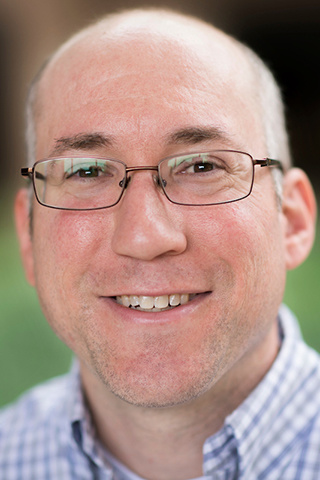Despite policies created to help low-income and first-generation students attend college, many never move past the application process. One reason for this, according to a University of Iowa researcher, is that admission officials often lack information that puts a student’s academic achievement in proper context.
For example, a high school student who graduates with a strong GPA, a mediocre SAT score, and a couple of Advanced Placement classes, might be passed over by a selective admission officer. But if the admission officer has access to details that give a more holistic picture, including the percentage of free and reduced-price meals served at the applicant’s high school and number of AP classes offered, the outcome often is different.
In fact, research shows that when admission officers have access to these details, they’re 26–28 percent more likely to admit low-income students.

“Bias in college admissions could be greatly reduced if admissions officers had easy access to the situational factors that play into an applicant’s high school achievements,” says Nicholas A. Bowman, director of the UI College of Education’s Center for Research on Undergraduate Education (CRUE). “Too often this information does not exist or, if it does, it takes too much time for an admissions officer to find.”
Bowman conducted the admission research with Michael N. Bastedo, director of the University of Michigan’s Center for the Study of Higher and Postsecondary Education. The study was published in the March issue of the journal Educational Researcher, and it has already resulted in some frank discussions among college admission officers about the challenges they face in finding the most deserving students.
As part of the study, Bowman and his co-author asked 311 admission officers at 174 selective higher education institutions to review three applications from fictional white male students planning to major in engineering. One student was from a lower-income school, and the other two were from upper-middle-class schools, conclusions admission officials were able to make by looking at the graduation rate of their high schools and the education level of their parents.
Half of the admission officers, however, got a version of the student files that included additional details about the students’ high schools, including college enrollment rates, average SAT or ACT scores, percentage of students who qualify for free or reduced-price meals, whether Advanced Placement courses were available, and what percentage of students who took AP classes earned scores of three or higher.
“What we found was that if you highlight contextual factors such as the number of Advanced Placement courses offered at a high school or a student’s inability to access SAT prep classes, it really does work to improve outcomes for these students,” Bowman says.
Bowman and co-author Bastedo are advocating for the creation of a national database with high school statistics that could be updated annually. University admissions offices could then provide this information to admission officers as a part of each student’s college application file.
“A database of this type would certainly level the playing field when it comes to college admissions,” Bowman says.
The CRUE symposium
Bowman will discuss his research as part of a symposium on experimental research in higher education to be held from 8:45 a.m. to 6 p.m., May 22 at the UI College of Education’s Lindquist Center.
Symposium participants include Benjamin Castleman, a behavioral economist from the University of Virginia who served as a senior advisor to former First Lady Michelle Obama’s Reach Higher Initiative, and Mary Murphy, associate professor of social psychology at Indiana University Bloomington, who studies the effects of administrative hassles such as frustrating web forms and complicated course-selection tasks on first-generation students.
The CRUE symposium is free and open to the public. For a complete list of speakers, please see the College of Education website.